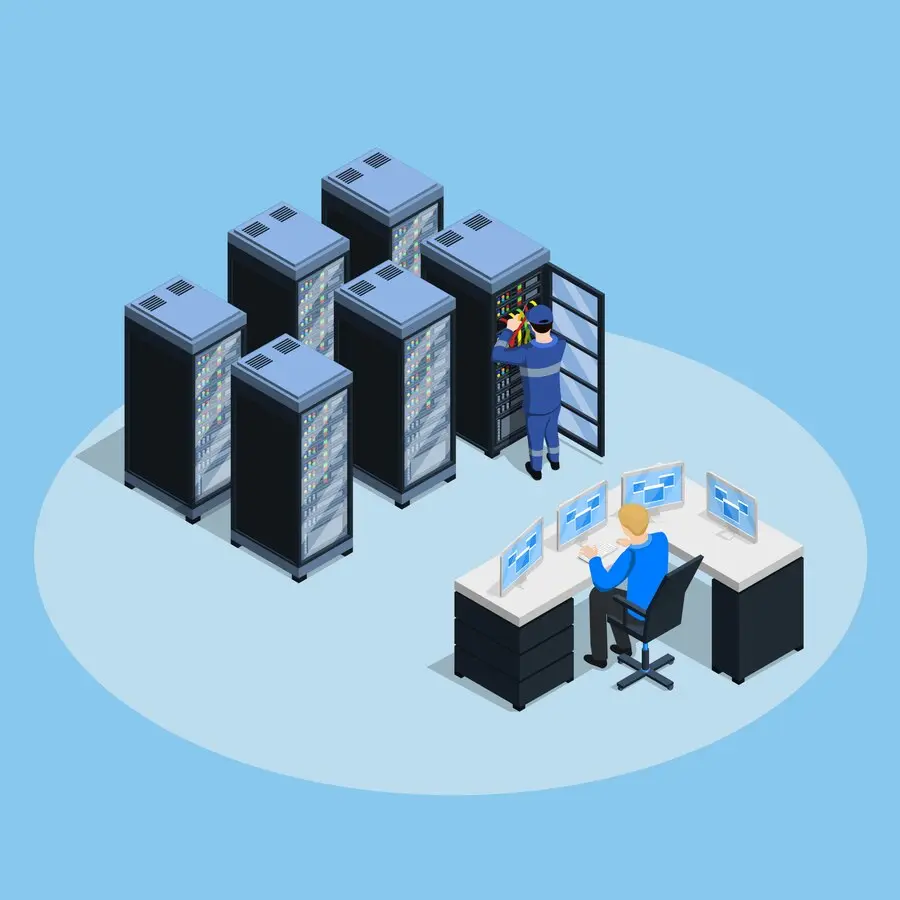DATA CENTER
DESCRIPTION
Data centers are designed to manage large amounts of data and IT infrastructure. They provide secure, reliable, and efficient environments for storing, processing, and distributing data, supporting critical business operations and services.

ACTIVE SERVICES
Servers
The core computing units of the data center that host applications, databases, and provide compute power for various workloads. They can range from standard rack servers to high-density blade servers.
Networking Equipment
Includes switches, routers, firewalls, and load balancers that manage data traffic flow, ensure network security, and optimize performance across servers and storage devices.
Storage Devices
Critical for data storage and management, including SAN (Storage Area Networks), NAS (Network-Attached Storage), and SSD arrays that provide high-speed, reliable data access and storage.
Power Distribution Units (PDUs)
Essential for distributing and managing power supply to servers and other active components, ensuring reliable and efficient power usage with built-in monitoring and redundancy features.
Cooling Systems
Maintains optimal temperature and humidity levels to ensure all equipment operates efficiently. Includes CRAC (Computer Room Air Conditioning) units, in-row cooling, and liquid cooling systems.
Security Systems
Includes firewalls, intrusion detection systems, biometric access controls, and surveillance cameras to protect against unauthorized access and ensure data integrity and privacy.
PASSIVE SERVICES
Racks and Cabinets
Provide the physical structure to house servers, storage devices, and networking equipment. Designed for optimal airflow, cable management, and equipment organization.
Cabling Infrastructure
Comprises structured cabling systems, including fiber optic and copper cables, that connect servers, storage, and networking devices, ensuring reliable data transmission and network performance.
Cooling Infrastructure
Includes passive elements like cold aisle containment, hot aisle containment, and airflow management to enhance the efficiency of active cooling systems in maintaining optimal temperature.
Raised Floors and Cable Trays
Raised floors provide space for cable management, cooling distribution, and power cabling. Cable trays and racks help organize and protect cables from damage and interference.
Fire Suppression Systems
Composed of fire detection, suppression, and containment components like fire-rated walls, smoke detectors, and gas-based suppression systems to protect critical infrastructure from fire damage.
Grounding and Bonding Systems
Essential for electrical safety, these systems prevent electrical faults and protect both equipment and personnel from electrical shocks and surges by providing a common grounding path.
THIRD PARTY SERVICES
Managed Services
We offer managed services to handle monitoring, maintenance, and management of IT infrastructure, ensuring optimal performance and reducing the burden on in-house teams.
Backup and Disaster Recovery
We provide backup and disaster recovery solutions to ensure data protection, business continuity, and fast recovery in the event of data loss or catastrophic events.
Cloud Service
We offer scalable cloud services such as IaaS, PaaS, and SaaS, enabling data centers to expand capacity, improve flexibility, and reduce on-premises hardware costs.
Software Solutions
Third-party software solutions, such as monitoring, virtualization, automation, and security software, enhance data center operations, efficiency, and security.
